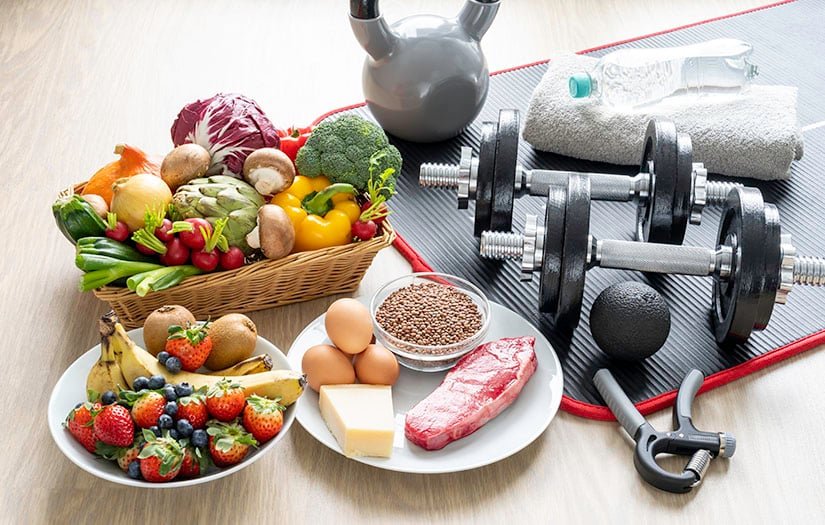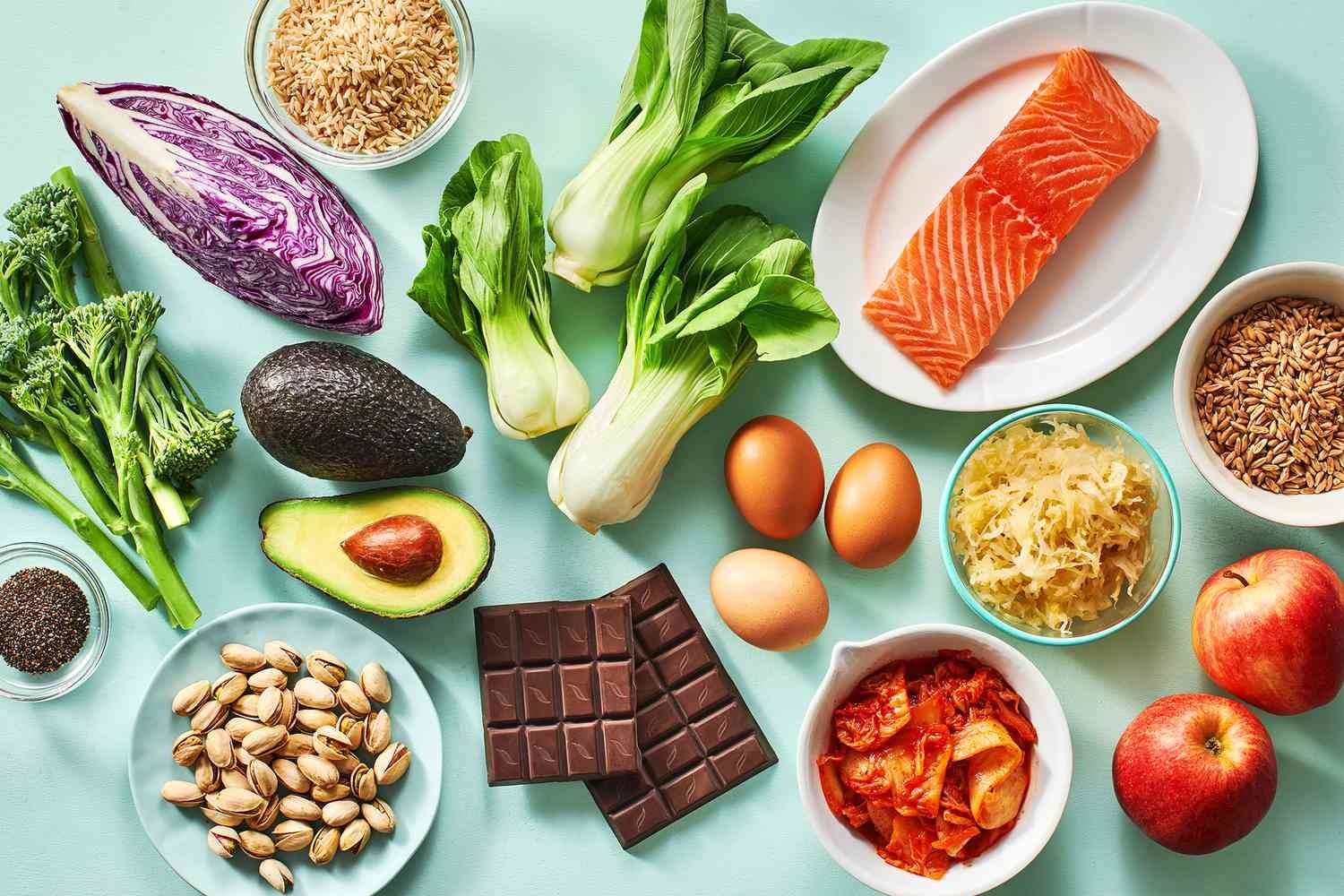
Pregnancy is a crucial time in a woman’s life, and good nutrition is crucial for the health of both mothers and babies. Proper nutrition during pregnancy means not only eating more but also consuming the right types of foods to help the baby grow and develop while maintaining the mother’s health. During this time, the body undergoes significant changes and requires more nutrients, such as protein, iron, calcium, folic acid, and other vitamins. If mother and baby don’t eat well, they can face a variety of problems, from developmental issues to health risks after birth. Therefore, every pregnant woman should know and follow specific dietary guidelines.
The Importance of Protein for the Health of Mother and Child
Protein is one of the most important nutrients for pregnant women, as it promotes the growth of the brain and other fetal tissues and helps the mother’s body adapt to changes in blood flow and the enlargement of the uterus. Adequate protein intake helps the baby grow and maintain muscle mass and strength. Eggs, chicken, fish, beans, nuts, and dairy products are all good sources of protein. Consuming protein at every meal not only supports growth but also helps maintain stable blood sugar levels, which is crucial for preventing gestational diabetes. During pregnancy, professional nutritionists repeatedly emphasize that protein is an important factor for the health of both mother and baby.
Iron and Blood Health During Pregnancy
Iron is another important nutrient for pregnant women because it helps produce more blood, which is necessary to transport oxygen to the mother and fetus. If a pregnant woman does not get enough iron, she may develop anemia. A lack of iron can cause fatigue and weakness and, in severe cases, lead to difficulties during labor. You can get iron from lean meats, green leafy vegetables, beans, and fortified grains. Eating iron-rich foods combined with foods rich in vitamin C, such as citrus fruits, helps the body absorb iron better. Often, doctors may recommend iron supplements, especially during the second and third trimesters, when the body’s iron needs are greatest. A professional nutrition plan ensures that both mother’s and baby’s iron intake is closely monitored to protect their health.
Folic Acid and Brain Development
Folic acid is one of the most important nutrients for pregnant women, as it promotes the development of the baby’s brain and spinal cord. Adequate folic acid intake before and during pregnancy can help prevent neural tube defects such as spina bifida. Therefore, many doctors and nurses recommend that women start taking folic acid even before pregnancy. Green leafy vegetables, beans, lentils, and fortified grains are all natural sources of folic acid. Pregnant women need adequate folic acid daily, which can be obtained through food and supplements. This vitamin contributes to brain development and the baby’s overall health.
Calcium and Vitamin D Strengthen Bones
Calcium and vitamin D are crucial for the mother’s bone health and the growth of the baby’s bones and teeth. If a pregnant woman doesn’t get enough calcium, the fetus can absorb some of it from her body, which can lead to weak bones and increase the risk of osteoporosis later in life. Calcium is found in dairy products, leafy greens, and fortified plant-based milks. Oily fish, sunshine, and fortified foods are good sources of vitamin D. Specialized nutrition programs during pregnancy ensure that these nutrients are prioritized because they directly impact bone strength and the long-term health of both mother and baby.
Pregnancy and Hydration and Balance
Water is one of the most important, yet often overlooked, components of a specialized pregnancy nutrition program. Adequate hydration helps increase blood volume, maintain a stable body temperature, promote digestion, and reduce the risk of common pregnancy problems, such as bladder infections and constipation. Adequate hydration also supports the production of amniotic fluid, which protects and cushions the fetus. Pregnant women should drink water throughout the day and eat hydrating foods, such as fruit and soup. Drinking enough water helps your body function better and makes you feel better during your pregnancy.
Managing Common Pregnancy Nutrition Challenges
Morning sickness, anorexia, heartburn, and increased sweet cravings are common problems during pregnancy and can make it difficult to eat healthily. Specialized nutrition can help address these problems by helping people ensure they get enough nutrients. For example, eating smaller, more frequent meals can alleviate nausea, and avoiding spicy and acidic foods can alleviate heartburn. When experiencing increased sweet cravings, it’s important to balance these symptoms with healthy choices to avoid missing out on important nutrients. By addressing these issues effectively, expectant mothers can maintain a healthy diet and thus promote their own health and the growth of their babies.
Conclusion
Specialized nutrition during pregnancy ensures optimal growth and development for both mother and baby. It ensures that energy, protein, vitamin, mineral, and water intake meet the necessary levels for pregnancy. By paying special attention to nutrients like iron, folic acid, calcium, and protein, mothers can reduce the risk of problems and give their newborn the best possible start in life. Mindful eating and expert support can help alleviate issues like nausea, sweet cravings, and fatigue. Ultimately, specialized nutrition isn’t about eating more; it’s about eating better so that every bite counts for both mother and baby.
FAQs
1. Why is a specialized diet during pregnancy vital?
Professional nutrition ensures that both mother and baby receive the essential nutrients they need for growth, development, and overall health during pregnancy.
2. Which nutrients do pregnant women need most?
Iron, protein, calcium, vitamin D, and folic acid are important nutrients for the health of mother and baby.
3. Can pregnancy supplements replace a balanced diet?
No, supplements should only be used to support a balanced diet. Whole meals contain additional nutrients, such as fiber and antioxidants, which pills cannot completely replace.
4. How many extra calories do pregnant women need?
During the second and third trimesters, it is recommended to consume an extra 300-400 calories per day, but these calories should come from nutrient-rich foods.
5. What foods should be avoided during pregnancy?
To ensure the baby’s health, pregnant women should avoid raw or undercooked meat, certain types of fish high in mercury, unpasteurized dairy products, and excessive caffeine intake.



